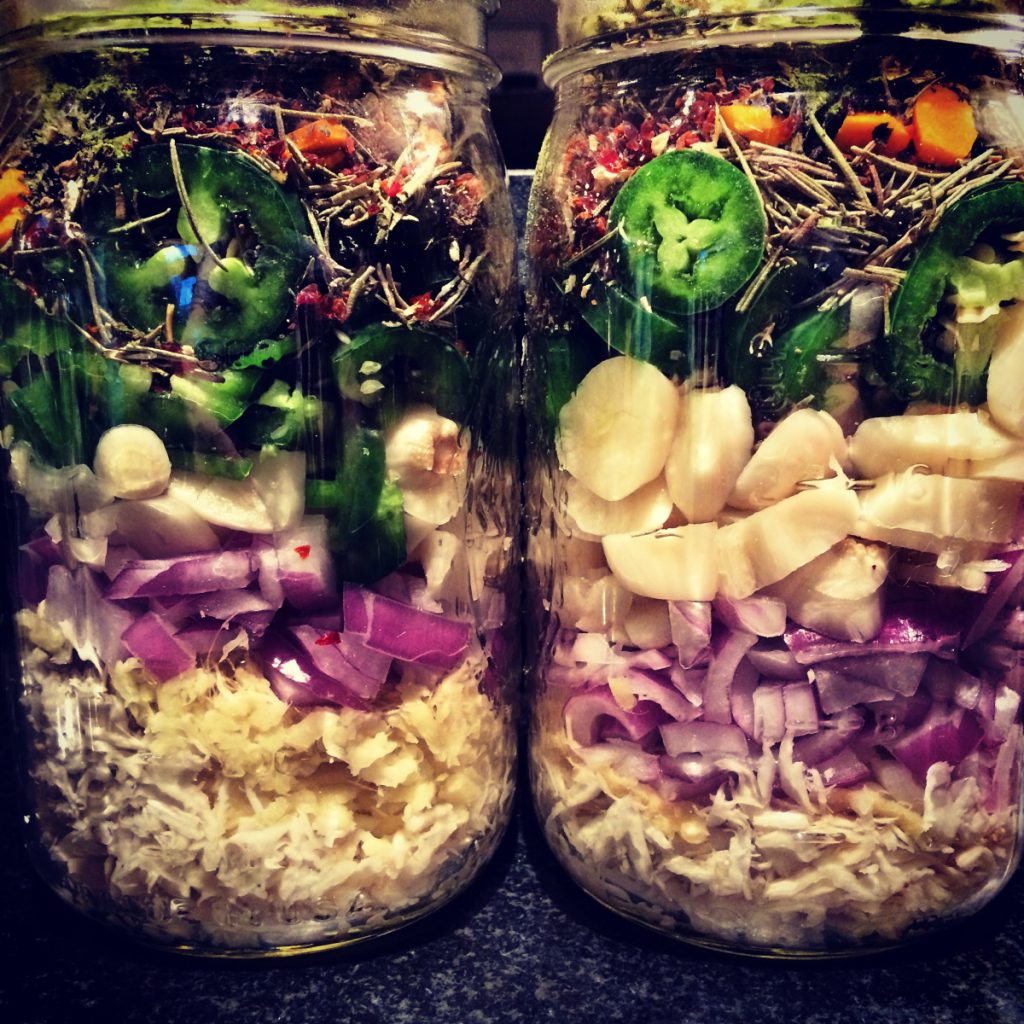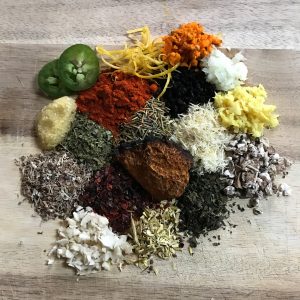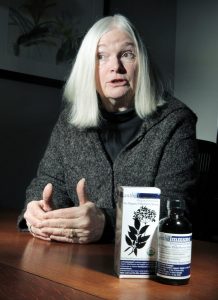
In January, when this year’s nasty cold and flu season was in full swing, Todd Maurer and his staff at King Eider’s Pub in Damariscotta kept hearing about regulars who had become casualties: “So-and-so is sick in bed at home.” “Mr. Whozit is at the hospital today getting a chest X-ray.”
“So many people were calling and canceling dinner,” Maurer said.
Even Maurer’s own in-laws, he said, were “very sick.”
Maurer’s thoughts turned to his childhood and the chicken soup his mother, known at the pub as Mrs. Miriam, used to make for him when he was sick. He swears that the soup, made with chunks of both white and dark meat chicken, turnips, carrots, onions, celery, garlic and fresh thyme, will cure what ails you, even though it’s “just soup.”
“You know when you feel crappy and you feel down in the dumps, opening up a can of soup doesn’t do it,” Maurer said.
Homemade chicken soup is probably the best-known home remedy that Mainers – and untold others around the world – turn to to ward off a cold or the flu, or ease symptoms once the virus has settled in and made itself at home in your body. In addition to the usual precautions recommended by physicians – vaccines, handwashing, lots of rest and fluids – some Mainers turn to nature’s pharmacy come winter, trying everything from herbal tonics to elderberries. They get vitamin C from items like rosehips, red peppers and collard greens. They drink ginger tea to settle their stomachs.
While a lot of research has been done on foods and herbs used as home remedies, the scientific evidence that they work is not a slam dunk, according to Dr. Elizabeth Eisenhardt, director of the adult medicine clinic at Maine Medical Center. Not for garlic, not for echinacea, not even for mom’s chicken soup.

“To be honest, the evidence is not that great for any of the common herbal supplements and home remedies that you think about,” she said. “I think it would be fine to have chicken soup, but other than it just hydrating people and giving them some nice protein and nourishment, I don’t think it’s going to actually decrease the duration (of a cold) or the symptoms that they have.”
But herbalists and others who swear by old-fashioned home remedies point to their long history of use – in some cases dating back to ancient times – as well as their own experiences warding off colds and flu using herbs and other natural ingredients in tonics, tinctures and teas. Hippocrates himself, considered the father of medicine, called the elderberry bush his “medicine chest.”
In a year in which the number of flu cases has been especially high, and in which the strain of flu has been especially fierce, we asked several Mainers who use – and in some cases sell – home remedies to tell us about their favorites.
SPREAD THE HEALTH
Maurer is such a believer in his mother’s homemade soup he became a chicken soup evangelist. He made a big pot for his in-laws in January, cleverly leaving it in their garage because, he joked, “we didn’t want to get contaminated.” Then he set out to help not only his own customers, but everyone in his hometown of Damariscotta. He made a huge batch of the soup, froze some of it, then posted on Facebook that the pub would be giving it away by the quart.
“Modern medicine can work wonders but a little love from the Pub might help too,” the Facebook post said.
By Valentine’s Day, the pub had given away about 125 quarts, including one that was overnighted to an ill woman in Kentucky who is a regular when she’s in Maine.
At LB Kitchen in Portland, chef Lee Farrington sells good-for-you foods such as bone broth, a trendy health elixir made by simmering bones, vegetables and herbs. At LB Kitchen, a 12-ounce chicken bone broth with turmeric, coconut chili oil and Himalayan salt goes for $7.
Farrington practices what she preaches at home. She fights the germs her 6-year-old daughter may have picked up at school with kid-friendly elderberry syrup. Less appealing to kids, but popular with the adults, is a tonic Farrington makes with 2 teaspoons apple cider vinegar, 1 tablespoon lemon juice, 8 ounces hot water, and 2 teaspoons honey. She sips it as a hot tea whenever she starts to feel funky, or makes it with 2 ounces of cold water to drink as a shot. It soothes the throat, she said, and if you drink it in the morning and evening, “it helps you feel better quickly.”
“I know so many people who drink something along the same lines several times a day,” she said.
Farrington also buys rapid immune boost and echinacea tinctures from an Oregon-based company called Herb Pharm, where her brother-in-law works.
The family makes a winter tonic they like so much that they’ve started selling it at the restaurant for $5 per 10-ounce bottle. The tonic contains apple cider and lemon juice for regulating gut health; maca root powder, an energy booster; cayenne to boost metabolism and aid digestion; cinnamon, an anti-inflammatory; and maple syrup for a little sweetening and antioxidant action.
FIRED UP
At Rooted Earth Farm in Casco, Sara Tryzelaar’s version of fire cider – a tonic based on an old-fashioned herbal medicine that’s become popular again – packs a bigger punch, and a lot more heat. Her base ingredients are unpasteurized cider vinegar, garlic, onion, horseradish, hot peppers, lemon zest and juice, rosemary and honey. For the kicked-up version she and her husband drink, she adds turmeric, locally harvested chaga mushrooms, echinacea, rosehips, astragalus, burdock root, nettle, Oregon grape root and moringa. The ingredients must infuse in the vinegar for at least four weeks.
“If we want it extra spicy, we add in habanero peppers,” Tryzelaar said.
The concoction is “a mix of things that are really warming when you’re getting sick,” she said, “and lots of immune boosters – stuff that’s high in vitamin C.”
“I try to take that every day,” Tryzelaar said, “but especially if I’m starting to feel like I’m getting sick, I take it two or three times a day.”
Yes, even a dedicated herbalist like Tryzelaar gets sick occasionally. So do doctors like Eisenhardt.
For Tryzelaar, illness usually hits in January, after she’s been through the holiday rush of orders from her farm. She works 100-120 hours a week at that time of year, running on little sleep and none of her preventive tinctures, “and then I think when I stop, my body just crashes.”
When the inevitable cold arrives, she lives on tea made with rosehips, lemongrass, hibiscus, licorice root, echinacea, elderberry and cinnamon, which she drinks with lemon and raw honey.
“I haven’t had the flu in many, many, many years, and I don’t do the flu shot,” Tryzelaar said. “I do elderberry. I swear by the elderberry for the flu.”
Eisenhardt, on the other hand, sticks to simple hydration and rest when she’s sick. If she has a fever and body aches, she might take ibuprofen.
The doctor cautions that because the U.S. Food and Drug Administration does not regulate herbal products, there’s no guarantee that you’re getting what you pay for. And, she added, before taking any herb-based home remedy, check with your physician about potential interactions with other medications you take.
A couple of randomized trials have shown that oral zinc might provide some benefit in preventing colds and decreasing their duration, Eisenhardt continued, but only if it’s taken daily for more than five months. One analysis of vitamin C has shown “a very small but significant reduction in the duration of cold symptoms,” she said, but its clinical relevance was unclear.
All that said, even Eisenhardt gets it: Taking some of these home remedies can make a person subjectively feel better. Warm liquids such as chicken soup and herbal tea soothe sore throats, and the steam rising from the liquids can help clear sinuses.
“If it makes you feel better and you’re certain it’s not going to interact with your medicines, then do it,” she said. Just be certain you can afford to spend your money on something that may not be effective, she added.
TEA THINKERS

Lots of people looking for relief have been spending their money on elderberry during this cold and flu season. Tryzelaar has sold a lot of elderberry this year, as has Edie Johnston, president of Maine Medicinals in Dresden, which makes AnthoImmune Organic Elderberry Syrup. Johnston can’t, by law, make any claims about her own product, but can speak generally about elderberry’s purported health benefits. She says “there’s now a large body of research” that shows antioxidant-rich elderberries have anti-viral properties that help prevent the flu, lessen its duration and alleviate symptoms.
Geo Johnston, director of operations and Edie Johnston’s son, says Maine Medicinals has been seeing increased sales over the past year that goes beyond expected market growth because people are learning about the benefits of elderberry. “We’re working nights and weekends around the clock to keep product moving forward,” he said.
Edie Johnston takes some of her own product every day, but she says there are many other ways to include elderberry in your diet, including vinegars, wines and elderberry pies.
“Tea is probably the most popular,” she said.
To make a tea, add 1 tablespoon of dried elderberries to 6 to 10 ounces of hot – not boiling – water. Or add a teaspoon of elderberry syrup to hot water. Don’t steep the berries for too long, and never boil them, as “excessive heat for extended periods of time will significantly degrade the phytonutrients and viability of the health benefits,” Geo Johnston said. “So letting it simmer all day long may get you a really beautiful color and may get you some flavor, but it’s not going to deliver the same potency of antioxidants that you’ll get from handling it in a more gentle manner.”
Elderflower also makes a good tea, Geo Johnston said, and contains antioxidants associated with promoting upper respiratory health.
“There’s really no wrong way to get elderberry into your system,” he said.
Whether it’s elderberry tea that you try, fire cider, or “just soup,” Maurer has some advice for those who have been laid low by the flu this year. Curl up on your couch with a blanket, and grab the remote control. Doze if you need to. Repeat every few hours.

Comments are no longer available on this story